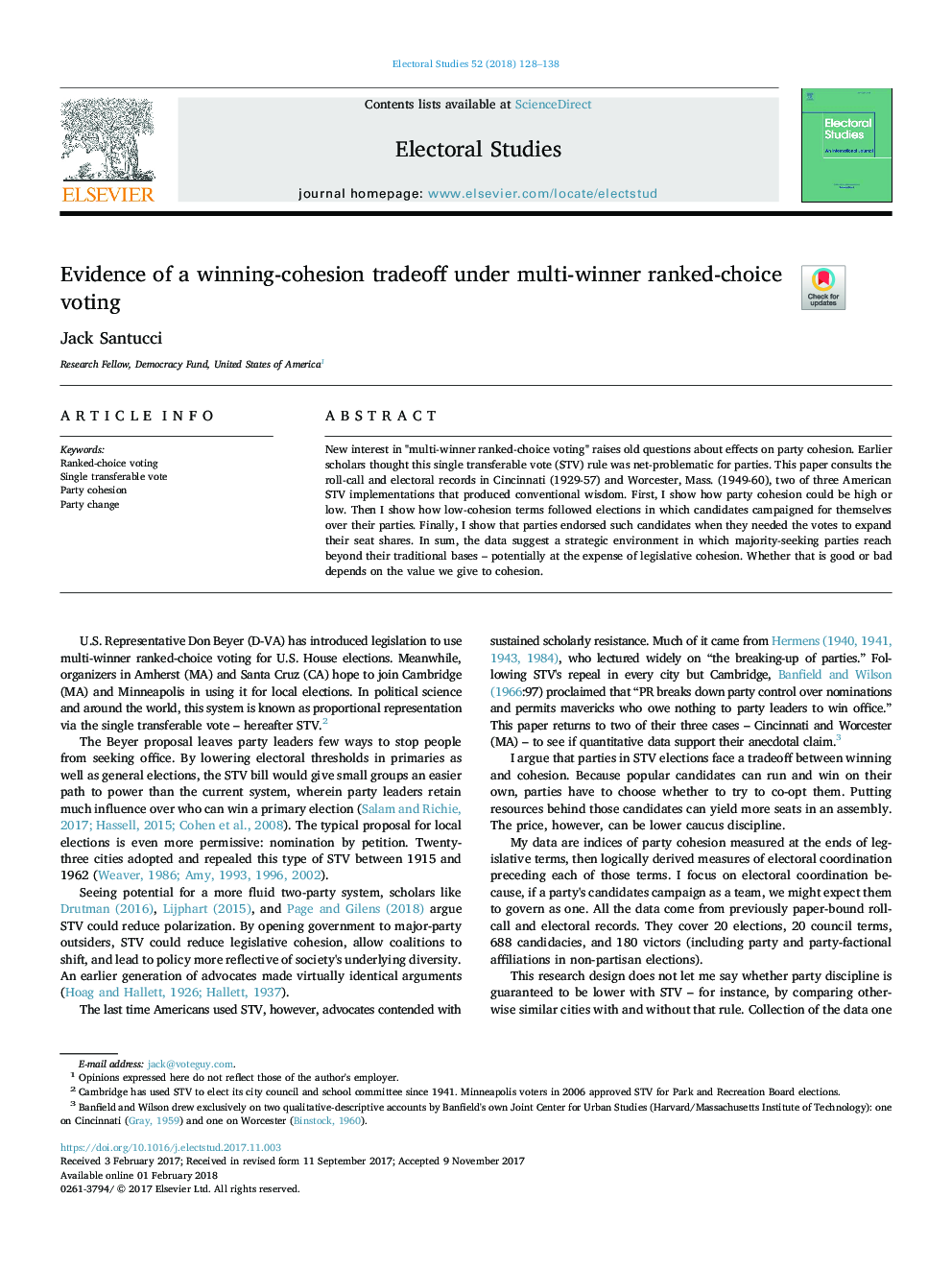| Article ID | Journal | Published Year | Pages | File Type |
|---|---|---|---|---|
| 7463308 | Electoral Studies | 2018 | 11 Pages |
Abstract
New interest in "multi-winner ranked-choice voting" raises old questions about effects on party cohesion. Earlier scholars thought this single transferable vote (STV) rule was net-problematic for parties. This paper consults the roll-call and electoral records in Cincinnati (1929-57) and Worcester, Mass. (1949-60), two of three American STV implementations that produced conventional wisdom. First, I show how party cohesion could be high or low. Then I show how low-cohesion terms followed elections in which candidates campaigned for themselves over their parties. Finally, I show that parties endorsed such candidates when they needed the votes to expand their seat shares. In sum, the data suggest a strategic environment in which majority-seeking parties reach beyond their traditional bases - potentially at the expense of legislative cohesion. Whether that is good or bad depends on the value we give to cohesion.
Keywords
Related Topics
Social Sciences and Humanities
Social Sciences
Geography, Planning and Development
Authors
Jack Santucci,
